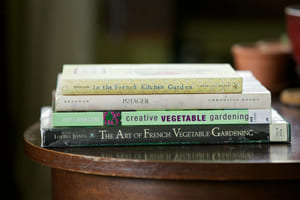
Organic gardening involves the following principles:
-
- Treating the soil and growing environment as a resource to be husbanded for future generations, rather than mined for short-term gain.
- Providing plants with a balanced food supply by feeding the many creatures living within the soil with composts, manures and other organic materials.
- Choosing renewable resources, thereby creating a sustainable future.
- Reducing pollution of the environment, by recycling garden, household and other wastes, rather than dumping or burning them.
- Combating pests and diseases without using pesticides that may prove harmful to human health and that of domestic and wild animals.
Encouraging and protecting wildlife, by creating suitable habitats and by minimising use of harmful pesticides.
- Creating a safe and pleasant environment in which to work and play.
- Taking new scientific discoveries and ideas on board, combining them with the best traditional knowledge.
- Using good horticultural practices.
- Recognising the importance of genetic diversity and hence the preservation of threatened plant varieties.
- Considering the whole garden – flowers, trees, shrubs and lawns, as well fruit and vegetables.
In other words, organic gardeners treat the garden as a complete ecosystem, and also as part of a much larger environment. They realise that the best results are achieved by working in harmony with nature not against her.
healthy soil
The most important factor in producing healthy, tasty crops is to build up the fertility of the soil. Where chemical growers use a range of laboratory chemicals to feed the plants, organic growers feed the soil with organic matter – manure, compost and other organic material. These not only feed the soil, they also encourage worms and other micro-organisms.
The value of worms can’t be emphasised enough. Worms live on the organic matter in your garden; they process it for you by eating it and then providing worm casts to nourish the soil. At the same time they aerate and break up the soil as they tunnel around looking for food. So if you give them plenty of organic matter to eat you’ll have numerous worms and therefore productive soil.
compost
Compost is invaluable to the organic grower. With a good compost, an organic gardener will not need any other fertiliser.
Any organic matter, material which was once living, will break down. The nutrients from the material are transferred to the compost and are thus recycled to use in nourishing other plants; so compost gives the grower a never-ending circular supply of all the nourishment the soil will need to grow strong and healthy vegetables.
mulching
Mulching is an excellent way of controlling weeds and clearing ground. It works because it deprives weeds of light. Without it they cannot grow.
Mulches are placed on the surface of the soil and vary from light excluding membranes to loose shredded prunings. To ensure success it is important to use the appropriate mulch for your particular situation.
careful selection of plants
Organic growers can give themselves a head start by using seeds from healthy, vigorous parent plants.
encouraging natural pest control
Many insects and other animals will eat garden pests. Creatures to encourage include: ladybirds, insect-eating birds, frogs, toads, hedgehogs.

